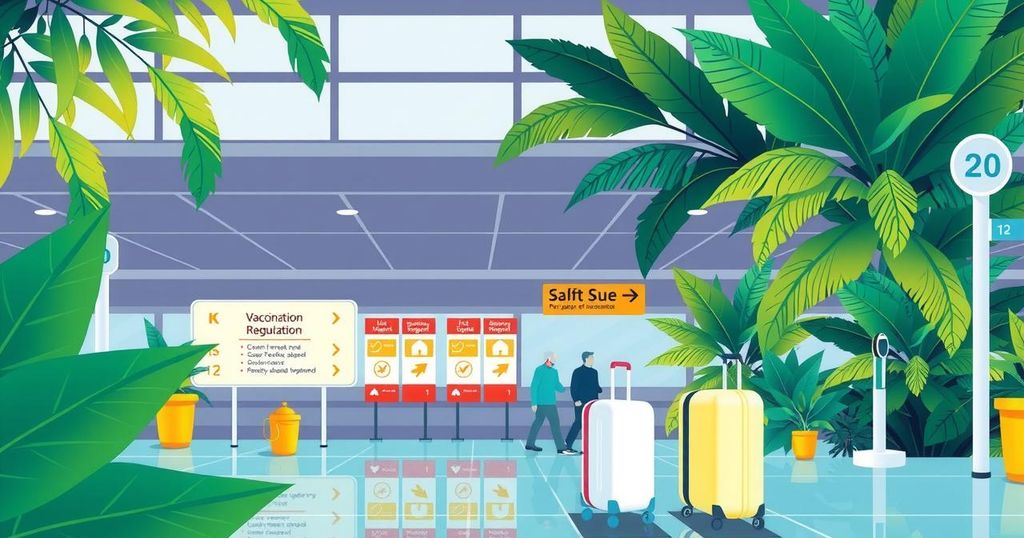A Peruvian tourist was denied exit from Juan Santamaría International Airport for lacking a yellow fever vaccination, as clarified by Health Minister Mary Munive. A similar case involved a Paraguayan senior citizen, illuminating a regional vaccination exemption issue. Amidst a national vaccine shortage, travel agencies have called for policy adjustments to protect the $4 billion tourism sector while maintaining public health standards.
Recently, a Peruvian tourist was not permitted to exit Juan Santamaría International Airport in Costa Rica due to the absence of a yellow fever vaccination. Health Minister Mary Munive elucidated the existing policy, stating that while transit passengers can remain in the airport without a vaccination, those intending to leave for sightseeing must be vaccinated. He was given the option, ‘Comply or stay,’ choosing to remain in the airport instead.
A similar situation occurred with a Paraguayan citizen over the age of 60, who was denied entry upon arrival to attend San José’s annual book fair, again due to the lack of a vaccination certificate. Munive explained that in South America, individuals over 60 frequently do not receive vaccination certificates, hence causing complications for travelers like him. Costa Rica is currently amending its regulations, especially for individuals arriving from Peru, Paraguay, Brazil, and other at-risk nations, to accommodate these disparities.
These instances have highlighted an ongoing yellow fever vaccine shortage in Costa Rica, further exacerbated by global supply chain issues and a recent uptick in cases across the Americas, as reported by PAHO/WHO. The Costa Rican Association of Travel Agencies (ACAV) and the National Chamber of Tourism (Canatur) have collectively urged the Ministry to suspend strict vaccine requirements until vaccine supply can adequately meet demand. Canatur’s Shirley Calvo emphasized that the current shortage hampers compliance efforts, posing a threat to both tourists and the nation’s tourism sector, valued at $4 billion.
On March 11, 2025, the Ministry initiated a vaccination campaign at the borders, accompanied by a digital certification system. However, the path to resolving the vaccine shortage and ensuring smooth travel remains uncertain. Minister Munive noted the need for adaptability as Costa Rica seeks to balance public health imperatives with the tourism industry, emphasizing the importance of clear communication and accessibility to vaccines for thousands of travelers from risk zones.
In conclusion, the enforcement of yellow fever vaccination requirements has led to complications for inbound travelers in Costa Rica, particularly concerning the existing vaccine shortage. While the government aims to protect public health, a balance must be struck with the needs of the tourism sector and the expectations of international visitors. Ongoing efforts to enhance vaccine access and communication will be crucial in preventing further disruptions in travel and tourism.
Original Source: ticotimes.net




